Our live coverage of Russia's war in Ukraine has moved here.
May 14, 2024 - Russia's war in Ukraine
By Ivana Kottasová, Michelle Shen, Aditi Sangal, CNN
Georgian president says protesters can use October elections to "reverse" foreign agents law
From CNN's Niamh Kennedy and the Amanpour team in London
Georgia’s president has called on protesters to use their vote in upcoming parliamentary elections to "reverse" the controversial foreign agents law passed by the country’s parliament on Tuesday.
President Salome Zourabichvili admitted to CNN's Christiane Amanpour that there are "many concerns" after the parliament voted in favor of the controversial foreign agents law.
"The way and the place where we can reverse all of this is the elections in October...And we have to use this mobilization of the society and this consolidation of the political parties to go and win those elections," Zourabichvili said.
The president, who has previously accused Russia of trying to bolster its influence over the former Soviet country, told CNN that she will symbolically veto the law.
Due to the setup of Georgia's parliamentary system, Zourabichvili holds mainly a figurehead role and her veto can be overruled by a simple parliamentary majority.
She called the law a complete "duplicate" of one passed by the Kremlin in 2012 which she said has been used to "completely oppress and repress the civil society" in Russia.
Russia is growing more and "more worried" by Georgia's rapprochement with the European Union, Zourabichvili remarked, referencing the recent decision by the bloc to grant Georgia candidate status.
Although roughly 20% of Georgian territory is currently controlled by Russia following the 2008 invasion, Georgia has not been "diverted" from "following its European path," the president added.
"It has not stopped us an inch and it will not stop us continuing," she added.
White House slams foreign agents legislation in Georgia, says if enacted the US will reevaluate ties
From CNN's Sam Fossum
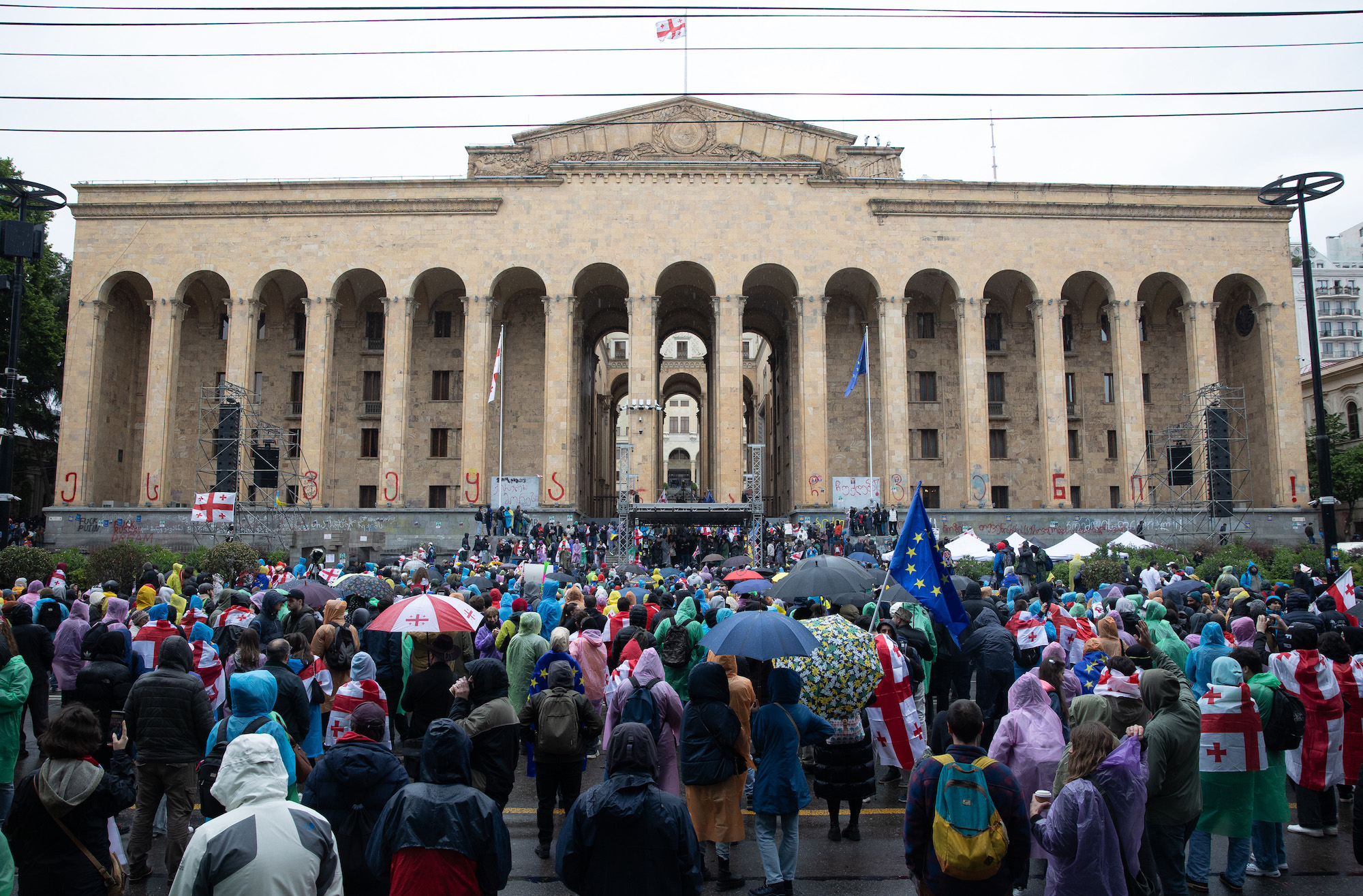
The White House has slammed Georgia’s controversial foreign agents legislation, warning that if enacted it would “compel” the US to reevaluate its relationship with the country.
“We're deeply troubled by Georgia’s Kremlin-style foreign agents legislation,” White House Press Secretary Karine Jean-Pierre told reporters Tuesday.
“This weekend, we saw some of the largest protests in Georgia's history, with tens of thousands of peaceful protesters, undeterred by intimidation tactics telling their government to oppose this legislation because they want a Euro-Atlantic future.
"We will see what the parliament does, but if this legislation passes, it will compel us to fundamentally reassess our relationship with Georgia.”
When pressed later on what she meant, Jean-Pierre would not elaborate. The legislation has already passed the country’s parliament, but its president has vowed to veto it. It’s unclear if that veto would then be overridden.
Georgia’s parliament passed the controversial law by 84 votes to 30, despite widespread domestic opposition to the move, which would require any organizations receiving more than 20% of funding from abroad to register as foreign agents.
Opponents say that the legislation was modeled after similar laws in Russia that the Kremlin has used to increasingly snuff out opposition and civil society.
The bill has become a cultural flashpoint in a country which, like Ukraine, finds itself caught between Russia and Europe. Polls show that an estimated 80% of Georgians want to join the EU, but Moscow’s geopolitical orbit has proven tough to exit.
Georgia’s parliament now has 10 days to send the bill to President Salome Zourabichvili. Zourabichvili will then have two weeks to veto it, but parliament can override her objection with a simple majority.
Ukrainian foreign minister hails ties with Russia-friendly Serbia during Belgrade visit
From CNN's Benjamin Brown and Mariya Knight
Ukraine's Foreign Minister has hailed ties with Serbia, traditionally seen as one of Europe's more Russian-leaning states, on a visit to Belgrade. He was accompanied on the trip by Olena Zelenska, wife of Ukrainian President Volodymyr Zelensky.
In March 2022, Kyiv's Serbian embassy closed with the United States and the United Kingdom accusing Serbian businesses of assisting Russia in circumventing sanctions.
Following Monday's meeting between Foreign Minister Kuleba and Serbian President Aleksandar Vucic the embassy is set to be reopened.
"We are grateful to the Serbian president for agreeing to hold a Ukrainian-Serbian business forum in the near future, as well as to resume the work of the Serbian embassy in Ukraine for the first time since March 2022," Kuleba said in a post on X.
Kuleba also said he and Vucic discussed a variety of bilateral issues building on "productive dialogue" Vucic has previously had with Zelensky.
Since the start of Russia's invasion of Ukraine, Serbia has aided the war-torn country by sheltering Ukrainians and donating humanitarian aid.
In a statement during her visit to the country to participate in a mental health conference, First Lady Olena Zelenska expressed gratitude to Serbia for its contribution.
"The needs of Ukrainians for emergency medical care have increased significantly, as the Russian terror against Ukrainian settlements not only continues, but also shows an alarming tendency to intensify," Zelenska said.
"I am grateful to Serbia for understanding that people matter most," added Zelenska, who visited the country to take part in a mental health conference.
Traditionally one of Moscow's closest allies in Europe, Belgrade has long tried to walk a tightrope between its historical ties to Russia and a potential future of closer European integration.
Serbia's contribution to Ukraine aid can be seen as part of its commitment to joining the European Union, but its relationship with the bloc is strained refusing to participate in EU sanctions rounds against Russia.
"Serbia is deeply committed to becoming a member of the European Union and has voted for the United Nations resolution condemning Russian actions in Ukraine and has upheld its territorial integrity and sovereignty, and repeatedly sent various types of aid," Serbia's ambassador to the United States said in a statement to CNN last year.
Blinken: US will seize Russian assets to fund the reconstruction of Ukraine
From CNN's Michael Conte and Kylie Atwood
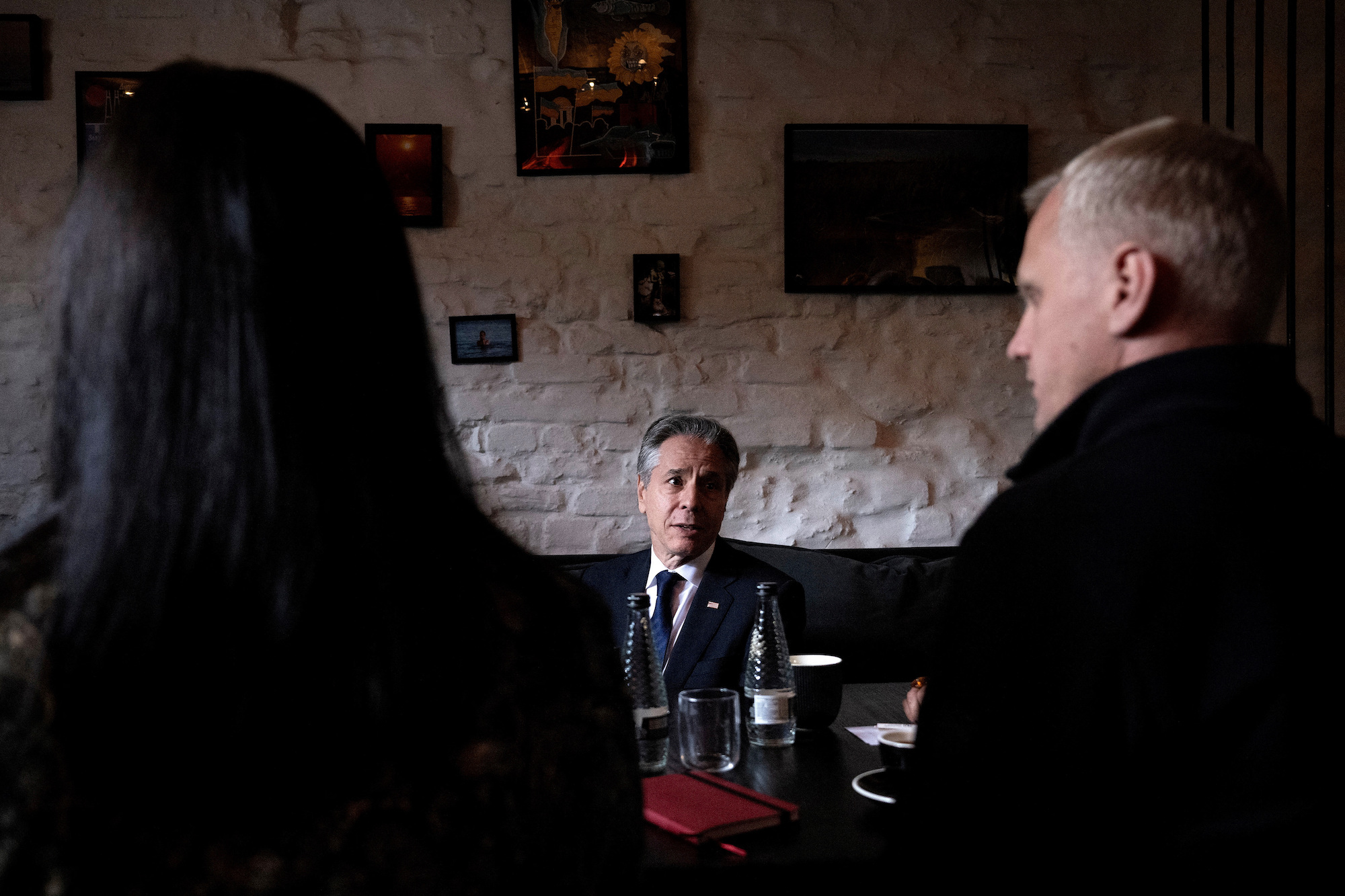
Secretary of State Antony Blinken reiterated that the US intends to make use of seized Russian assets to provide funding for the reconstruction of Ukraine.
“Our Congress has given us the power to seize Russian assets in the United States. We intend to use it,” Blinken said during a speech at the Igor Sikorsky Kyiv Polytechnic Institute in Ukraine.
“What Putin destroyed, Russia should and must pay to rebuild.”
Blinken said the US is working with other G7 countries to do the same with “Russia’s immobilized sovereign assets.”
“The G7 can unlock billions of dollars and send a powerful message to Putin that time is not on his side,” Blinken said.
Blinken’s remarks come after a meeting with Ukrainian President Volodymyr Zelensky, in which Blinken reiterated the US “commitment to Ukraine’s recovery," according to a State Department Spokesperson Matthew Miller.
Blinken in Ukraine: 'You are not alone.'
By CNN's Michelle Shen
During his visit to Ukraine, US Secretary of State Antony Blinken echoed the Biden administration's strong support of the beleaguered country amid Russia's recent advances in Kharkiv.
"I have come to Ukraine with a message. You are not alone," Blinken said at a briefing at the Kyiv Polytechnic Institute.
The speech comes after Congress and the White House passed a funding package that included $60-plus billion in aid to Ukraine, and the EU approved a financial package of up to $54 billion.
Blinken focused much of his speech about building security and economic infrastructure in Ukraine to pave a path to NATO acceptance.
"When we hold the Washington Summit in July, we'll take tangible steps to increase NATO's role in building a resilient, capable Ukrainian force, supporting its ongoing reforms that are integrating Ukraine into the alliance," Blinken said.
Macron says France will send more military aid to Ukraine in ‘coming days and weeks’
From CNN’s Joshua Berlinger
French President Emmanuel Macron told his Ukrainian counterpart Volodymyr Zelensky in a phone call on Tuesday that France will send more military aid to Ukraine “in the coming days and weeks.”
During the call, Macron condemned the “intensification of Russian strikes on Ukraine, notably on its energy infrastructure” and reiterated “France’s determination to provide all the support necessary” to Kyiv in concert with its international partners.
Anger brews in Georgia as pro-Russian party pushes controversial “foreign agents” bill through parliament
From Ekaterine Kadagishvili, Joshua Berlinger, Jessie Gretener and Amy Cassidy, CNN
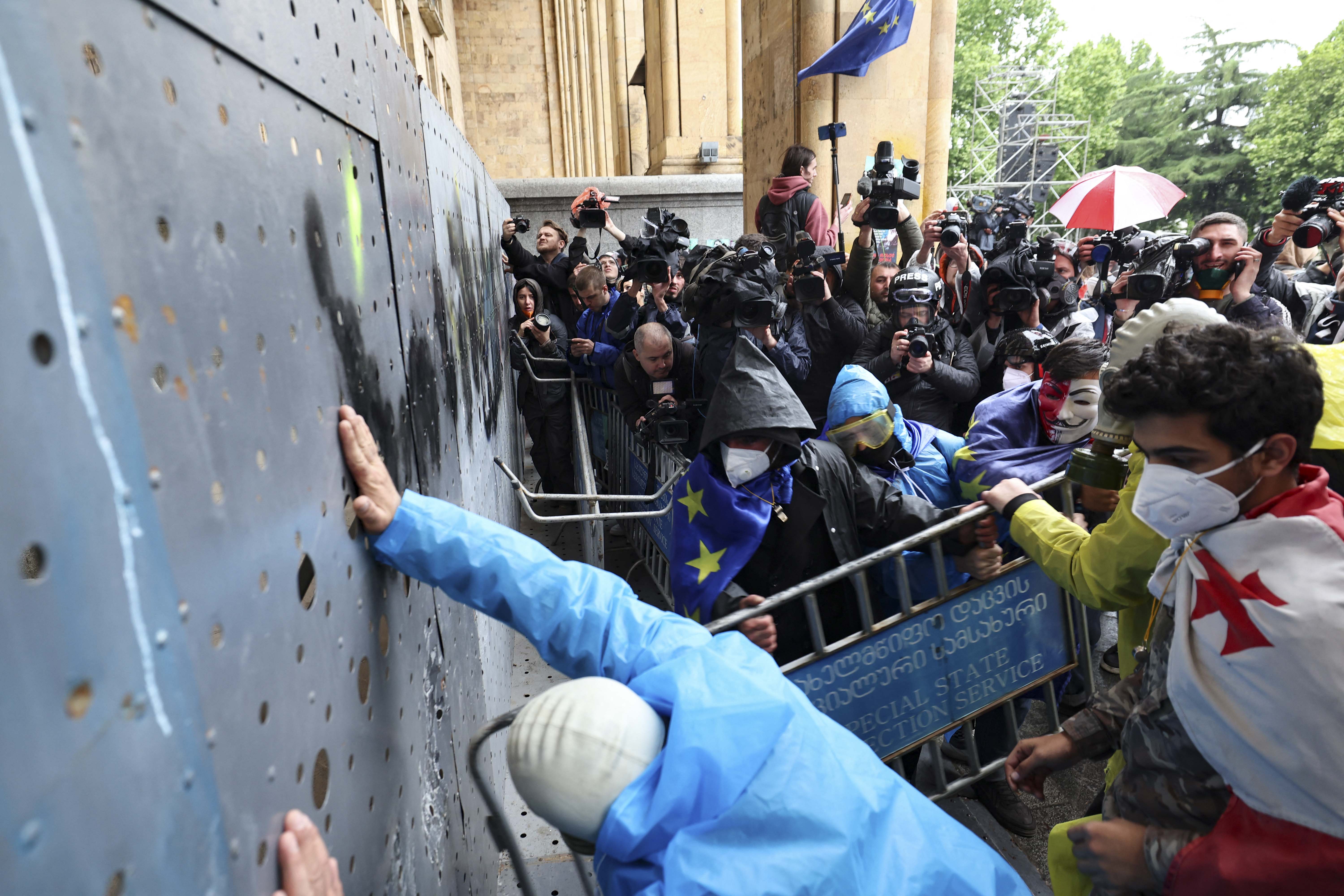
Georgia’s parliament has passed a controversial “foreign agents” bill despite widespread domestic opposition and warnings from the European Union that its enactment would imperil the country’s chances of joining the bloc.
The new law will require organizations receiving more than 20% of their funding from abroad to register as “agents of foreign influence” or face crippling fines. Opponents say that the legislation was modeled after similar laws in Russia that the Kremlin has used to increasingly snuff out opposition and civil society.
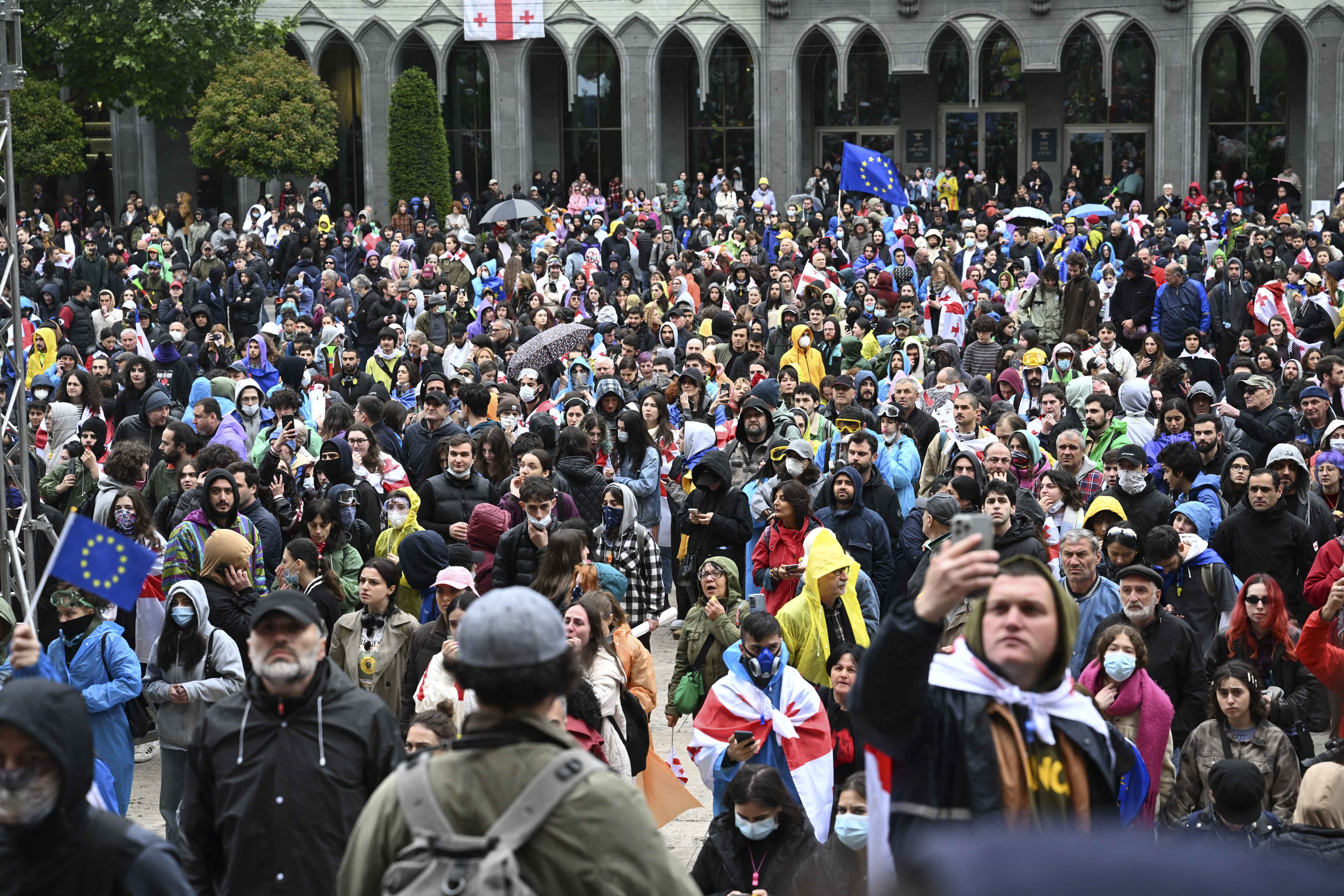
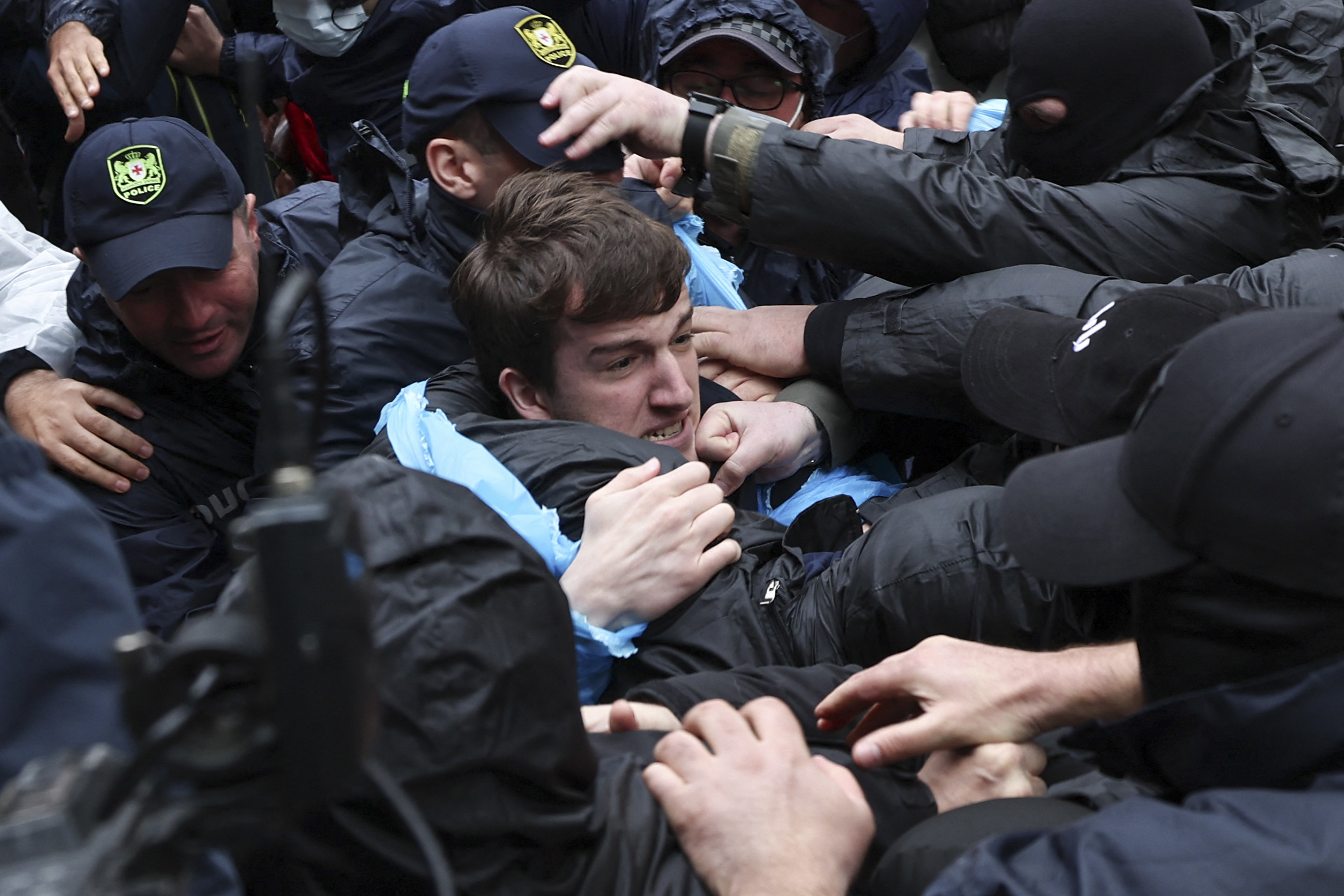
Georgian Dream, the ruling party that pushed through the legislation, has hit back at criticism, saying the move will promote transparency and national sovereignty. But the party has long been suspected of harboring pro-Russian sympathies.
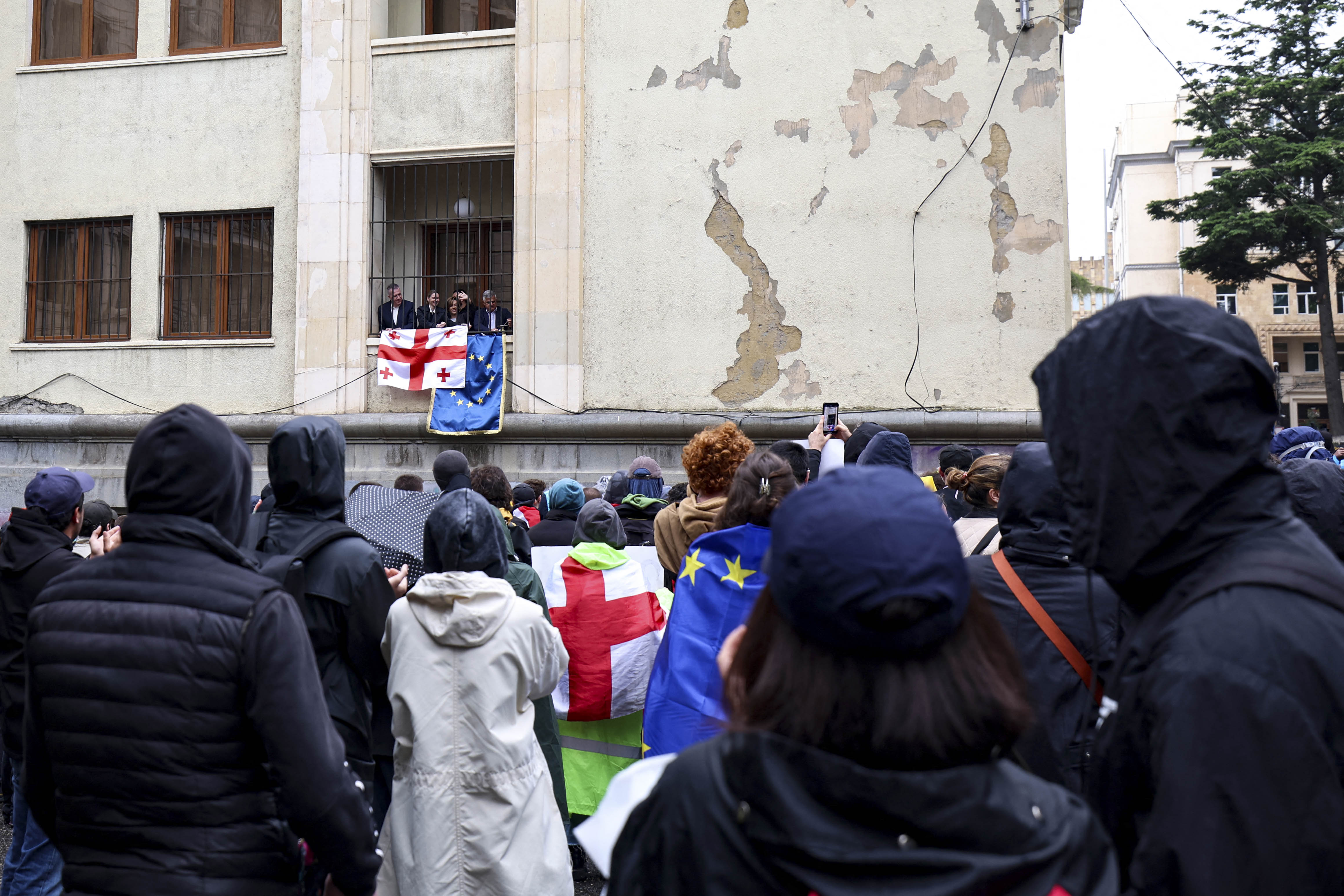
Nightly protests have been shutting down the capital, Tbilisi, for about a month. About 50,000 people came out Sunday evening in the city of 1 million people to speak out against what they’ve dubbed “the Russian law.”
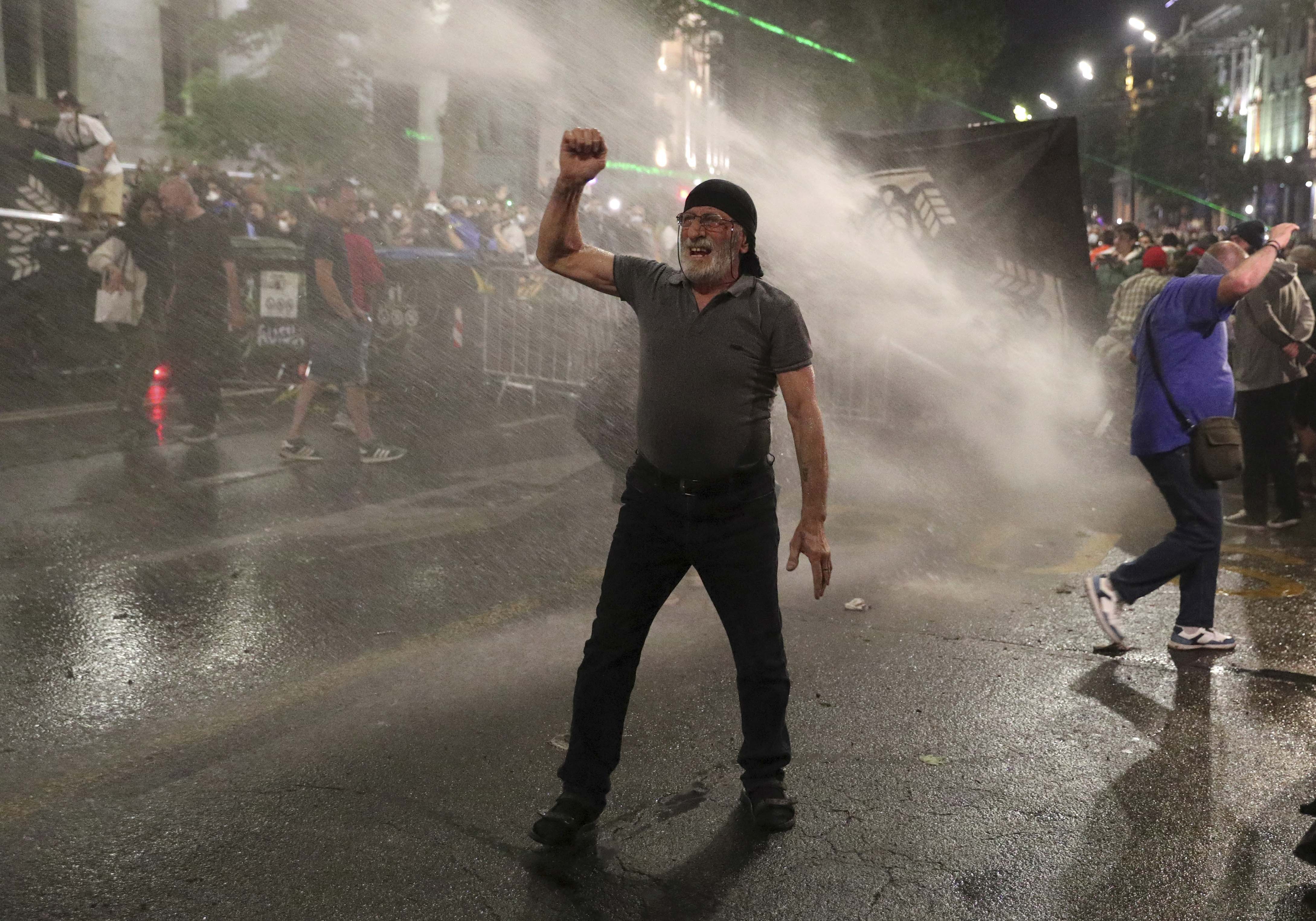
Georgia applied for EU membership in 2022 and was granted candidate status in December, a move seen as an effort to reverse the former Soviet republic’s drift toward Russia.
Russia invaded Georgia in 2008 and still occupies about 20% of Georgia’s internationally recognized territory.
Russia continues exploiting Ukraine’s weaknesses in a series of frontline locations
From CNN's Andrew Carey and Maria Kostenko
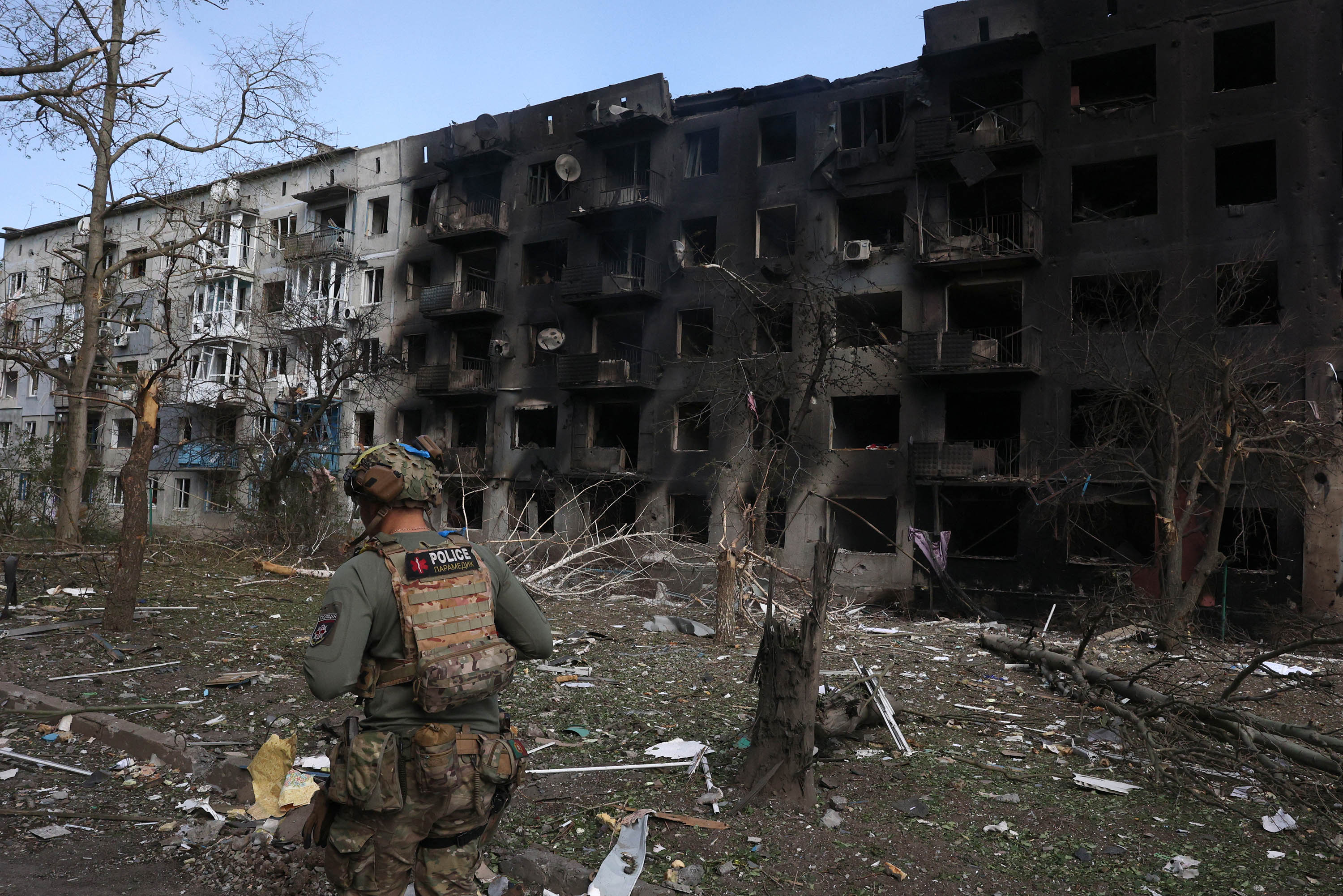
While attention is focused on advances in Kharkiv, Russia’s forces continue to exploit Ukraine’s weaknesses elsewhere, in particular along a stretch of the frontline west of the Russian-occupied city of Donetsk.
Since Russia captured the industrial town of Avdiivka in February, its forces have taken advantage of Kyiv’s acute shortage in artillery ammunition, as well as manpower deficiencies, by pushing into a series of towns and villages.
Ukraine’s General Staff, in its Tuesday morning update, hinted clearly at further tactical withdrawals in the area around the village of Ocheretyne – which was captured by Russian troops earlier this month.
“In order to save the lives of our defenders, the positions of the Defense Forces were changed in some areas due to intense enemy fire,” the General Staff reported.
The DeepStateMap monitoring group shows small Russian advances most days in the area, each one moving them a little closer to the town of Pokrovsk, a key military hub for logistics and supplies along the entire eastern part of the frontline.
Further to the west, Ukrainian forces are also coming under pressure southeast of Zaporizhzhia, one of the few areas where they achieved success, albeit modest in size, in last summer’s counteroffensive.
Both Russian military bloggers and Ukraine’s DeepStateMap report small Russian advances into a pocket of re-captured Ukrainian territory between the villages of Robotyne and Verbove.






